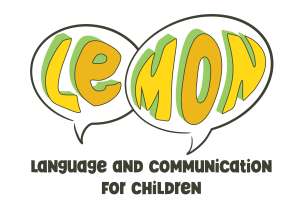PROJECT DETAILS
Despite the importance of language and communication skills for academic success and personal development for primary school pupils, existing teaching methods in many European countries remain traditional and overly focused on grammar, leaving little room for practical application and engagement. This has created a gap in equipping children with the communication skills necessary for real-life situations.
Teachers face challenges in adopting modern, interactive methods due to limited access to innovative tools and training. These challenges are further amplified when working with pupils from disadvantaged backgrounds who often face barriers to effective learning. Additionally, the role of emotional management in fostering a supportive and inclusive learning environment is underemphasized, leaving teachers without the necessary resources to address the emotional well-being of their students.
The project also acknowledges the critical role of parents in supporting children’s education. However, there is often a lack of structured approaches to involve parents meaningfully in the learning process. This gap reduces the potential for collaboration between schools and families, which is vital for motivating pupils and enhancing their learning experiences.
The main motivations of the «LEMON: LanguagE and coMmunicatiOn for childreN» project are:
Enhancing Language and Communication Skills: The project aims to improve primary school pupils’ language and communication skills, which are foundational for their academic and personal development. This involves addressing gaps in traditional teaching methods that fail to engage students effectively.
Empowering Teachers: By providing innovative tools and training, the project seeks to equip teachers with modern, inclusive methodologies for language instruction. This includes fostering their abilities to support disadvantaged pupils and integrate emotional management strategies into their teaching.
Promoting Inclusivity: The project places a strong emphasis on supporting pupils from disadvantaged backgrounds, aiming to mitigate learning inequalities and foster a more inclusive learning environment.
Engaging Parents in Education: Recognizing the role of parental involvement in children’s educational success, the project seeks to enhance collaboration between parents and schools to improve pupils’ motivation and communication skills.
Developing Emotional Management Tools: The project also focuses on equipping primary school teachers with tools to support the emotional growth and well-being of their students, recognizing its importance in holistic education.
Dissemination of Resources: A key motivation is to widely share the developed tools and methodologies (Interactive Book and Emotional Management Guide) to ensure broader adoption and impact across educational stakeholders at local, national, and international levels.
The LEMON project has three main objectives:
To develop innovative language and communication teaching materials that go beyond traditional grammar-focused methods. These materials aim to actively involve parents and empower disadvantaged pupils, creating a more inclusive and engaging learning experience in primary education.
To create a practical emotional management guide for primary school teachers. This guide will equip them with tools to foster the emotional well-being and healthy emotional development of their pupils, recognizing the key role emotions play in learning and inclusion.
To widely disseminate both the language teaching methodology and the emotional management guide, ensuring access and use by teachers and key educational stakeholders across local, national, and international levels.
Transnational Project Meetings (TPMs)
Kick-off Meeting – Spain
To launch the project, define tasks, responsibilities, timeline, and common agreements. The grant agreement, quality plan, communication strategy, and dissemination campaign are reviewed.
Mid-term Meeting – Italy
To assess the progress made during the first year, review quality indicators, adjust the schedule, and plan the next project phases.
Final Meeting – Portugal
To evaluate the overall project results and impact, share experiences among partners, and prepare for the final dissemination and closure phase.
Trainings and Participatory Visits
Participatory Visit – Italy
To exchange good practices in inclusive teaching methods for disadvantaged pupils and to enhance teachers’ capacity to use motivating and accessible approaches.
Participatory Visit – Portugal
To share non-traditional educational methodologies and strategies to effectively involve families in language and communication teaching.
Training Course – Spain
To train 5 teachers from each partner organization in emotional management. The course will present the contents of the forthcoming guide and promote skills for emotional well-being in the classroom.
The expected results of the «LEMON» project aim to create a lasting positive impact on primary education. They include:
- Innovative Tools: Development of an Interactive Book for language teaching and a Practical Emotional Management Guide for teachers.
- Empowered Educators: Teachers gain new methods, tools, and skills for inclusive and effective teaching, particularly for disadvantaged pupils.
- Improved Student Outcomes: Enhanced motivation and communication skills among pupils, with better inclusion and equitable learning.
- Parental Engagement: Stronger collaboration between schools and parents to support children’s education.
- Wider Impact: Dissemination of tools and methods to educational stakeholders, fostering better language education and emotional management practices.
- Collaborative Networks: Long-term synergies among educators and stakeholders, promoting innovative and inclusive education.
The LEMON project is designed to generate meaningful and sustainable change in primary education across Europe. Its impact goes beyond the development of innovative materials—it seeks to transform classroom practices, support inclusive learning environments, and strengthen cooperation among educators, families, and institutions. The following outlines the expected impact of the project on key stakeholder groups:
For Teachers
- Gain new, inclusive teaching methodologies that move beyond grammar-based instruction.
- Learn to integrate emotional management into everyday classroom practice.
- Increase capacity to work with disadvantaged pupils, adapting strategies to diverse needs.
- Receive concrete, ready-to-use tools (Interactive Book + Emotional Guide) that enhance lesson planning and delivery.
- Engage in peer learning and international exchange through mobilities and collaborative work.
For Pupils
- Benefit from more engaging and interactive language learning, making it easier to participate and succeed.
- Develop stronger communication skills, essential for academic and social development.
- Experience a more inclusive classroom environment, with reduced barriers for those from disadvantaged backgrounds.
- Improve emotional well-being, as teachers are better equipped to support emotional growth.
For Schools and Educational Institutions
- Strengthen ties with families and communities, thanks to structured parental involvement strategies.
- Increase the institution’s profile in European cooperation and educational innovation.
- Adopt and integrate non-traditional pedagogical tools into standard practice.
- Provide internal training (via workshops) that spreads knowledge project-wide.
For Educational Stakeholders (e.g. ministries, NGOs, networks)
- Gain access to tested educational resources that can be scaled or adapted to other settings.
- Benefit from the dissemination of results through multiplier events and publications.
- Receive concrete examples of effective approaches to language learning and emotional inclusion.
- Engage in cross-sector collaboration for improved educational policy and practice.
Apart from that, the partners involved in the LEMON project will gain valuable benefits across professional, institutional, and strategic dimensions. Specifically, they will:
- Enhance their expertise in innovative, inclusive teaching methodologies for language and communication, especially through hands-on experience in the development and testing of the Interactive Book and Emotional Management Guide.
- Strengthen staff capacity by participating in international training activities and exchanges, improving their ability to address the needs of disadvantaged pupils and manage emotional dynamics in the classroom.
- Improve institutional visibility and credibility, both locally and at European level, by leading or contributing to high-quality outputs recognized by educational stakeholders.
- Foster international collaboration, building long-term partnerships with like-minded organizations and opening doors for future Erasmus+ projects and shared initiatives.
- Develop dissemination and impact strategies, gaining experience in organizing public events, stakeholder engagement, and internal staff training with skills transferable to other contexts.
- Access and contribute to co-created educational tools, which can be integrated into each partner’s existing programs, ensuring long-term use beyond the project’s duration.
PROJECT ACTIVITIES
POSTER of the Kick-off meeting in Spain
POSTER of the Participatory Visit in Italy
POSTER of the Training Course in Spain
POSTER of the Participatory Visit in Portugal
More details about the second transnational project meeting in Italy will be coming soon.
More details about the conferences in each partner country will be coming soon.
More details about the final transnational project meeting in Portugal will be coming soon.





